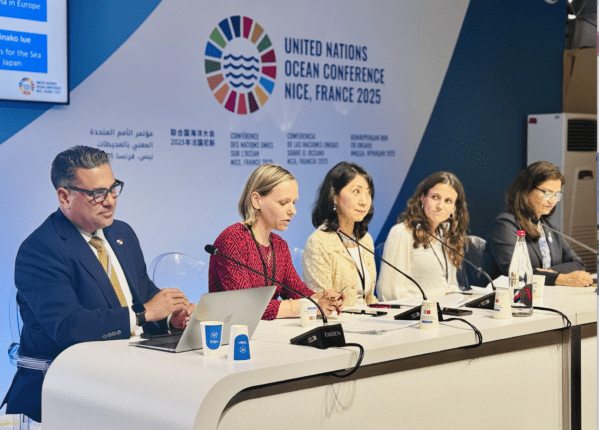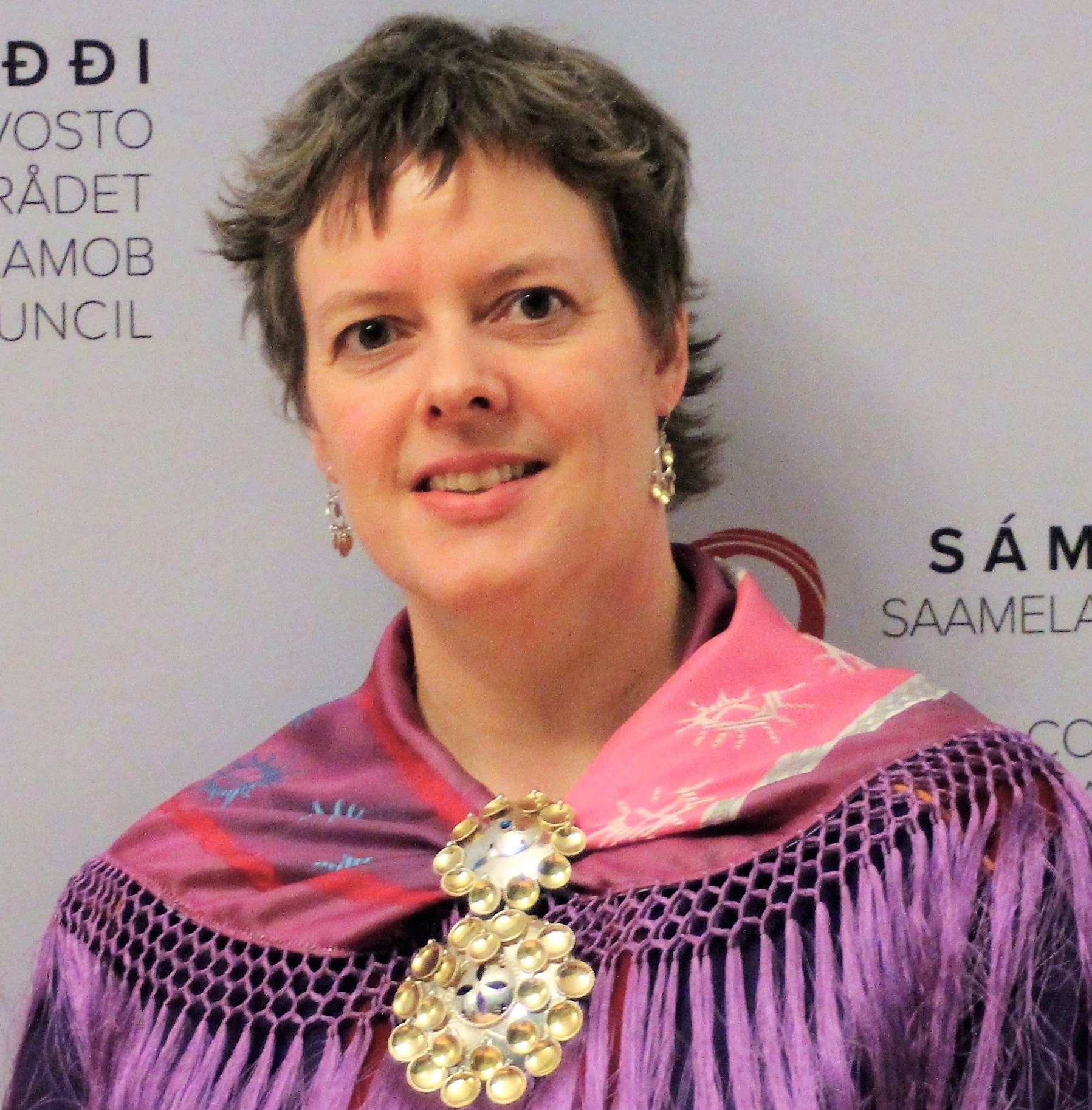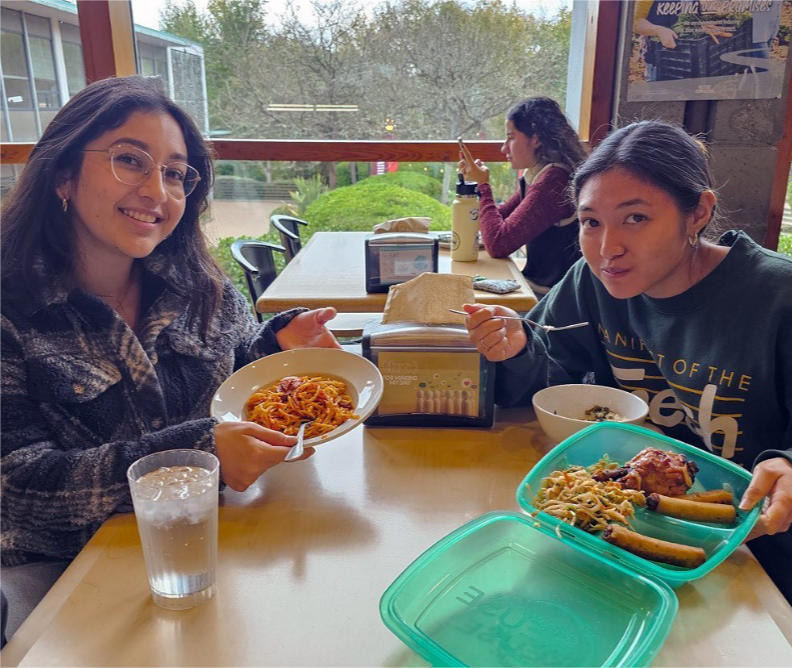-
Three Takeaways From the Third UN Ocean Conference
›July 10, 2025 // By Carolyn Gruber
“There cannot be a healthy planet without a healthy ocean. It’s urgent business for us all,” said U.N. special envoy for the ocean, Peter Thomson, at last month’s UN Ocean Conference (UNOC).
Hosted in Nice, France, the conference brought together more than 15,000 political leaders, scientists, civil society, the private sector, academic institutions, Indigenous peoples, local communities, and philanthropic organizations with the goal of identifying innovative ways to finance and mobilize action for the ocean.
-
From Waste to Wear: Chinese Startup Revolutionizing Sustainable Fashion with Recycled Materials
›China Environment Forum // Guest Contributor // waste // March 13, 2025 // By Yunhuan Chen, Haiying Lin & Haifeng HuangIn December 2024, the Global Plastic Treaty delegates kicked the plastic bottle down the road, delaying a final agreement to rein in the plastic pollution plaguing the planet. Recycling has failed to solve the problem, with most single-use plastic waste ending up in landfills (50%), incinerators (19%) or leaked into the environment (22%). Ultimately, the world needs to produce significantly less single use plastics and more reusable packaging. There is also a need to create better technologies and policies to push companies to transform plastics into new products.
-
When Going in Circles is a Virtue: “The Circular Economy”
›
As an economic model that emphasizes the continual use of resources by rethinking waste and product design and promoting a shared economy mindset, the “circular economy” (CE) now resonates across a wide range of stakeholders—including key players in the private sector, major environmental groups, individual countries, multilaterals, and donors. Yet progress in adopting CE among developing nations has been slow and uneven.
-
ECSP Weekly Watch | November 12 – 15
›
A window into what we’re reading at the Wilson Center’s Environmental Change and Security Program
Shell Wins Appeal to Overturn Landmark Emissions Ruling (Al Jazeera)
Three years ago, a court in the Netherlands ruled in favor of environmentalists and required energy giant Shell to drastically reduce its greenhouse gas (GHG) emissions. The decision would compel the company to cut the absolute carbon emissions it created in 2019 by 45% by the year 2030—including emissions caused by its products. This ruling was the first of its kind by requiring companies to adhere to the Paris Agreement, and it ignited further attempts by climate activists to take legal measures against other fossil fuel companies.
-
ECSP Weekly Watch | October 15 – 18
›
A window into what we’re reading at the Wilson Center’s Environmental Change and Security Program
Global Water Stress May Create a Food Crisis (Guardian)
In its recent report, The Economics of Water, the Global Commission on the Economics of Water examined world hydrological systems and their impact on water availability—and warn of imminent shortcomings in food production. The study asserts that the demand for freshwater will outweigh the supply by 40% in 2030, highlighting a significant shift in previous freshwater requirement estimates.
-
The Arc | Climate Justice in the Arctic: Part 1
› In today’s episode of The Arc, ECSP’s Claire Doyle and Angus Soderberg interview Gunn-Britt Retter, Head of the Arctic and Environmental Unit at the Saami Council, in part one of three episodes focused on climate justice in the Arctic. We dive into Gunn-Britt’s background and her work on the Saami Council. Gunn-Britt outlines how climate change is impacting the livelihoods and daily lives of the Saami people and how even our responses to climate change can threaten Indigenous rights and land use. She also makes the case for a fundamental reexamination of our relationship with nature to make progress on addressing climate change. Select quotes from the interview are featured below.
In today’s episode of The Arc, ECSP’s Claire Doyle and Angus Soderberg interview Gunn-Britt Retter, Head of the Arctic and Environmental Unit at the Saami Council, in part one of three episodes focused on climate justice in the Arctic. We dive into Gunn-Britt’s background and her work on the Saami Council. Gunn-Britt outlines how climate change is impacting the livelihoods and daily lives of the Saami people and how even our responses to climate change can threaten Indigenous rights and land use. She also makes the case for a fundamental reexamination of our relationship with nature to make progress on addressing climate change. Select quotes from the interview are featured below. -
ECSP Weekly Watch | August 12 – 16
›
A window into what we are reading at the Wilson Center’s Environmental Change and Security Program
Mpox Outbreak a Global Health Emergency, Again (The Washington Post)
Various rapidly spreading mpox strains in Central and East African countries have led the World Health Organization (WHO) to declare the viral infection as a global health emergency. More than 15,000 people have been infected this year alone, with over 500 deaths reported. Mpox is transmitted largely through exposure to infected animals, as well as via skin-to-skin or sexual contact, and it disproportionately affects heterosexuals and sex workers.
-
Reusable Food Packaging in US and China: Closing the Loop on Plastics in Closed Environments
›During the World Wildlife Fund’s Plastic Policy Summit in March in Washington D.C., I grabbed coffee in a white ceramic mug provided by the convention venue. Reusable mugs seemed unusual amid today’s prevalence of single-use cups, prompting me to reflect on how we have normalized single-use: I bought yogurt and soda in returnable bottles in Beijing; generations before us grew up with reuse. Why did we move away from it?
Showing posts from category circular economy.





 In today’s episode of
In today’s episode of 



